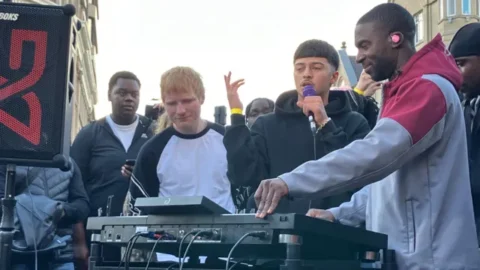Apple Music’s list of the most-streamed songs in Nigeria for 2024 paints a compelling picture of the country’s music landscape. Dominated by tracks released in 2023, the chart highlights the lasting impact of last year’s hits on listeners. Leading the pack is Seyi Vibez’s Different Patterns from his NAHAMciaga EP, released in December 2023.
The track’s infectious rhythm and relatable lyrics propelled it to the top, making it the most-streamed song of the year. Close behind is Omah Lay’s reflective single Holy Ghost, while Shallipopi’s chart-topping collaboration Cast with rapper Odumodublvck claims the third spot, blending Afrobeat and hip-hop influences to captivate audiences.
The top five further underscore the influence of Seyi Vibez, as his hit Cana joins Kizz Daniel’s Twe Twe to round off the list of leading tracks. Both songs exemplify the range of Nigerian music, from melodious Afropop to rhythm-heavy Afrobeat.
Beyond the top five, the dominance of Nigerian artists continues with Wizkid’s IDK featuring Zlatan, Chike & Mohbad’s collaborative hit Egwu, and the Tshwala Bam remix featuring Burna Boy, which makes TitoM and Yuppe the only non-Nigerian lead artists in the top 50.
Interestingly, 14 of the top 20 songs were released in 2023, suggesting that Nigerian listeners gravitated more toward older releases, with Burna Boy’s Higher and other 2024 hits like Ruger & BNXN’s POE still making an impression.
Despite the success of these tracks, some critics, including music journalist Joey Akan, have described the dominance of 2023 songs as a sign of a lackluster year for Nigerian music in 2024.
Adding to the conversation is the absence of female artists in the top 20, reflecting a disparity in representation. Ayra Starr achieved the highest entry for a female act with Bad Vibes featuring Seyi Vibez, which landed at number 24.
This raises questions about the challenges female artists face in breaking into the upper echelons of the charts. Overall, while the list highlights remarkable achievements by Nigerian artists, it also serves as a call for a more vibrant and inclusive music industry in the coming years.









